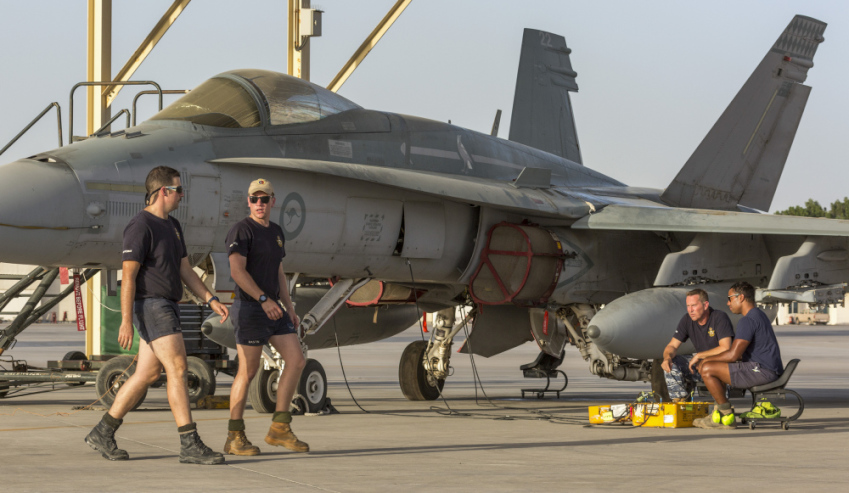The chief executive of one of Australia’s largest defence companies has expressed concern over the changes to the temporary skilled worker 457 visa.
To continue reading the rest of this article, please log in.
Create free account to get unlimited news articles and more!
Vince Di Pietro of Lockheed Martin Australia told reporters at a media briefing on the company's approach to building sovereign capability that foreign contractors are essential to building the Australian defence industry.
In April this year, the government announced it would scrap the four-year visa program and replace it with new two-year and four-year visas.
The list of 650 occupation classifications that qualify for a temporary visa has now been reduced by 200.
Di Pietro said his company has 93 foreigners in Australia, on various visa types including 457.
The chief executive said the cost of getting waivers will become apparent "downstream somewhere" in the defence industry.
"There's no doubt the new limitations on 457s will have a direct impact in the absence of any ability to seek a waiver," he said.
The Lockheed Martin Australia CEO is not the first in the industry to express his concerns. As previously reported on Defence Connect, those in the aviation sector are fearful they could face serious consequences from the new exclusions.
One key company that spoke off the record to Defence Connect said the changes will hinder the industry's ability to enhance its skills and capabilities.
"This will also have an impact on the defence aviation sector, where Defence relies on defence contractors being able to resource globally scarce high-end military pilot skillsets from both within Australia and internationally to build an Australian workforce, [and] to deliver services across a range of ADF contracted aircrew training programs," the company said.
The changes have seen pilots and avionic engineers totally excluded, while airframe/engine engineers are only eligible for temporary visas without any access to residency.
The Regional Aviation Association of Australia later stated these changes may have some serious unintended consequences for the aviation community.
According to a Rotorcraft Asia Pacific report, these changes are just another hit to the industry, which has already suffered over the past five years.
"The Australian aviation community has suffered from their regulator undergoing an internal restructure and losing their new CEO. During this difficult time, they started the process of converting the old Civil Aviation Regulations into the EASA-aligned Civil Aviation Safety Regulations," the report said.
"Industry has reported this caused a shortage of skilled workers; such as senior pilots and qualified engineers. In the past, some relief was obtained by bringing in overseas staff using the temporary work visa (457) processes."
Key changes to the visa rules are:
• The new visa program will include requirements around work experience, English language proficiency and labour market testing;
• The new visa will include a short-term two-year stream with a broad list of occupations reduced from the current list;
• A second visa class, focused on strategic, long-term skills gaps will have a four-year limit and require a higher standard of English than the two-year visa;
• Both visas will require prior work experience;
• Australian workers must have priority; and
• Both visas will require a criminal record check, which is not currently required.

 Login
Login







